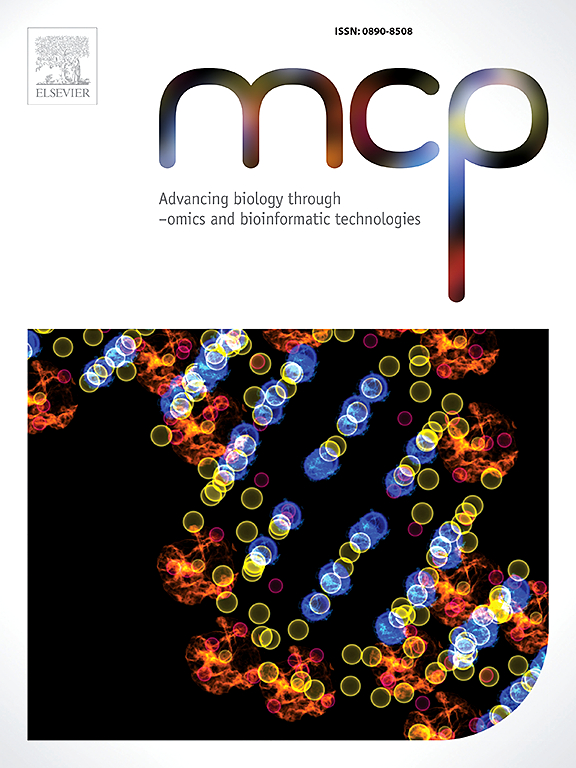Silymarin plus doxorubicin exerts the anti-hepatocellular carcinoma effects via Wnt, apoptosis, autophagy and angiogenesis pathways
IF 3
3区 生物学
Q3 BIOCHEMICAL RESEARCH METHODS
引用次数: 0
Abstract
Background
The biggest cause of death worldwide is liver cancer. Despite several initiatives and successes in treatment techniques, only a little improvement has been attained. In order to control this cancer, new therapeutic strategies are therefore required. Here, we evaluated the effects of doxorubicin and the milk thistle plant phytochemical Silymarin on liver cancer through apoptosis, autophagy, and Wnt signaling.
Methods
Silymarin both alone and together with doxorubicin was administered to induce cytotoxicity in the H22 cell line. qRT-PCR and Western blot analyses, the genes related to autophagy, Wnt signals, and cell death were examined.
Results
Doxorubicin and Silymarin both individually and combined dramatically slowed down H22 cells growth. Additionally, there was a significant drop in the Bcl-2 protein and a considerable rise in the caspase 8 and Bax proteins. LC3-I, LC3-II, and Beclin 1 have been all shown to be significantly elevated. Moreover, there was a substantial decrease in the expression of genes involved in the Wnt pathway, including cyclin D1, β-catenin, ZEB1, and Twist. The levels of AMPK were decreased in Silymarin with Doxorubicin alone and in combination, whereas VASP, VEGF, and HIF-1a were lowest.
Conclusion
Silymarin may enhance anti-tumor effects of doxorubicin through modulating autophagy, angiogenesis, and apoptosis, in-vitro.
水飞蓟素联合阿霉素通过Wnt、凋亡、自噬和血管生成等途径发挥抗肝癌作用。
背景:全世界最大的死亡原因是肝癌。尽管在治疗技术方面采取了一些举措并取得了成功,但只取得了一点改善。因此,为了控制这种癌症,需要新的治疗策略。在这里,我们评估了阿霉素和水飞蓟植物化学物质水飞蓟素通过凋亡、自噬和Wnt信号传导对肝癌的影响。方法:水飞蓟素单用及与阿霉素联用诱导H22细胞株细胞毒性。qRT-PCR和Western blot分析,检测自噬、Wnt信号和细胞死亡相关基因。结果:阿霉素和水飞蓟素单独或联合使用均能显著减缓H22细胞的生长。此外,Bcl-2蛋白显著下降,caspase 8和Bax蛋白显著升高。LC3-I、LC3-II和Beclin 1均明显升高。此外,参与Wnt通路的基因,包括cyclin D1、β-catenin、ZEB1和Twist的表达也大幅下降。水飞蓟素与阿霉素单独或联合使用时AMPK水平降低,而VASP、VEGF和HIF-1a水平最低。结论:水飞蓟素可能通过调节体外自噬、血管生成和细胞凋亡来增强阿霉素的抗肿瘤作用。
本文章由计算机程序翻译,如有差异,请以英文原文为准。
求助全文
约1分钟内获得全文
求助全文
来源期刊

Molecular and Cellular Probes
生物-生化研究方法
CiteScore
6.80
自引率
0.00%
发文量
52
审稿时长
16 days
期刊介绍:
MCP - Advancing biology through–omics and bioinformatic technologies wants to capture outcomes from the current revolution in molecular technologies and sciences. The journal has broadened its scope and embraces any high quality research papers, reviews and opinions in areas including, but not limited to, molecular biology, cell biology, biochemistry, immunology, physiology, epidemiology, ecology, virology, microbiology, parasitology, genetics, evolutionary biology, genomics (including metagenomics), bioinformatics, proteomics, metabolomics, glycomics, and lipidomics. Submissions with a technology-driven focus on understanding normal biological or disease processes as well as conceptual advances and paradigm shifts are particularly encouraged. The Editors welcome fundamental or applied research areas; pre-submission enquiries about advanced draft manuscripts are welcomed. Top quality research and manuscripts will be fast-tracked.
 求助内容:
求助内容: 应助结果提醒方式:
应助结果提醒方式:


